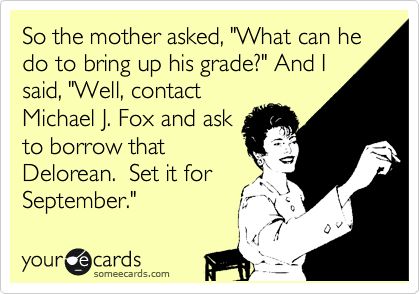
We all have those few students who slack during the semester, have a 57%, and come begging for extra credit before grades are due. For many teachers the answer is….

… and I totally get it. Grading late work is no fun and I’m not going to go out of my way to find extra credit assignments. But there have been times where I have a student who is honestly working their butt off and deserve a small boost. Here are a list of extra credit opportunities that are actually worthwhile (opposed to bringing in boxes of tissues or cleaning your lab tables!) Some require more effort than others, so you can decide how much each assignment should be worth.
1. Crash Course Videos:
Have your students watch a crash course video on a topic you have learned about and ask them to write a summary of the video. You can find the crash course videos on youtube here.

2. Have students do service for a scientific cause.
I would love for all students to leave my classroom knowing that it is important to leave the world a better place than we found it. Service could include doing a neighborhood clean-up, starting a garden, or participating in a citizen science project. Have them do a write-up of what they did and get a parent signature.
3. Have students record themselves doing a home experiment. For example, you can have them test Newton’s 1st law of motion by pulling a tablecloth out from under the dishes. Need ideas of what they can try? Check out Steve Spangler’s Sick Science videos on youtube, have them watch a video, try it at home, and write a small summary of how/why it works.

4. Complete a book report.
Ask students to read a science-related book and write a book report on it. The book should be approved by the teacher prior to beginning. There are a ton of science related books out there that students would enjoy such as “Stiff” or “Packing for Mars” by Mary Roach, “The Martian” by Andy Weir, or “The Immortal Life of Henrietta Lacks” by Rebecca Skloot. You can read another blog post that includes more book recommendations here. (Want a comprehensive book list your students can choose from? CLICK HERE).
5. Watch a science documentary:
There are a ton of free science documentaries out there that can be found on youtube (or netflix if they have an account). The documentary should be approved by the teacher prior to beginning. Ask students to write a 1-2 page summary of the documentary, what they learned, and how it impacts their life. (This could also work for podcasts!)
Have any other great extra credit ideas? Leave them in the comments!